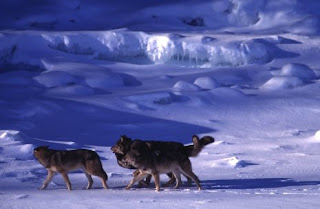"Oh, you heard several wolves howling in Tobin Harbor last night? Of course, you might be right, and that would be very exciting, but have you ever heard a loon call before? Loons have four different calls, and one is actually often mistaken for wolves."
"I understand that your backpack is very heavy, but we do have a one-night consecutive stay limit in Rock Harbor."
 "I know the trails are very narrow and not very flat - yes, I appreciate your suggestions, but remember this is a designated wilderness area."
"I know the trails are very narrow and not very flat - yes, I appreciate your suggestions, but remember this is a designated wilderness area."
People have good ideas and bad ideas; are super well informed and are total newcomers to the island. They are friendly and grumpy; have had great experiences and some very bad ones. As representatives of the Park Service, we do our best to turn the grumpy ones into happy ones, the bad experiences into better ones. As interpreters, we want to educate and inform our visitors. At the same time, we have to protect this wild wilderness, uphold the ideals of the National Park Service, and adhere to our park's regulations and management plans. It's a balancing act, for sure, with our best balancing tools a solid sense of humor and a deep respect for both the park and the visitor.
One critical issue, on a much broader scale, is that of climate change. Even with its widespread acceptance over recent years (months?), the term can still cause grimaces on some people's faces. Even skirting the issue, avoiding the topic directly, and only briefly mentioning something like "warmer winters" can make some people in your harbor-walk audience scowl. Believe me. I know.
But climate change is not something to be skirted or avoided; we know it's happening, we know human activity is a huge part of the problem, we know it has the potential to create big problems, and our little island here on Lake Superior is in position to be hit hard.
 |
| An island moose whose been severely affected by winter ticks; to see something REALLY gross, google 'moose ticks.' |
Islands, because of their isolation and separation, are always more susceptible to changes in environment, but Isle Royale is also home to two keystone species - the moose and the wolves - who will likely be strongly affected by a changing climate. This island is already at the southern range for moose, and if it gets warmer, they'll be affected more by the winter ticks that plague them, will need to rest more in the summer heat, and won't be able to forage and eat as much as they need. The wolves, of course, need the moose to survive; if the moose don't make it, neither will the wolves, even if they can recover from their current low numbers. It's also highly unlikely that we'll see any more of them crossing the ice to the island these days, since it's becoming more and more rare that an ice bridge forms between here and the mainland. Every species on Isle Royale is linked together, they are all isolated here by their water barriers, and they all are strongly affected by the weather, the temperature, the lake levels, and each other.
Climate change means change for Isle Royale, and that's why we can't let the grimaces and mutters keep us from talking about these issues with visitors. Having a deep respect for the park - and the visitor - means diving into the big issues, even if the surface water is a little bit warmer and easier to swim in.
-Liz Dengate
Snug Harbor Reporter
-Liz Dengate
Snug Harbor Reporter
Thanks for keeping up the good fight!
ReplyDeleteThis is so important! So glad you are tackling it head on (despite the grimaces).
ReplyDelete